
St Isaac of Syria

 The doorbell rang. “Trick or treat?” yelled two little seven year olds dressed as witches. I feigned horror at their ugliness, I think I might have said something about them being smelly, adding various little insults, rather enjoying myself. “What’s the trick?” I asked.
The doorbell rang. “Trick or treat?” yelled two little seven year olds dressed as witches. I feigned horror at their ugliness, I think I might have said something about them being smelly, adding various little insults, rather enjoying myself. “What’s the trick?” I asked.
John Allen has a very interesting comment on what might be the Pope's message in Turkey next month he compares the writing of the Pope and Sayyid Qutb, the radical Islamicist, hanged by Nasser in 1966.
Ever since the announcement of the Apostolic visit the ecumenical and interfaith dimensions have been very significant, I believe he regards it as the highpoint of his Papacy so far. Ardent Vatican watchers are aware that from the very beginning of his Papacy the relationship with Orthodoxy have been important but maybe the relationship and dialogue with Islam has been underestimated. Allen continually regards the Pope's words on Islam at Regensburg as a mistake or an error, I think they were really quite deliberate to lance the boil of violence, in order to speak about what Christianity and Islam have in common. First of all it is that man is not "homo faber", an industrial cog, a mere consumer under the illusion of secular western culture.
Sandro Magister has an a very useful piecen on dialogue.




 Blessed Theresa of Albania
Blessed Theresa of Albania

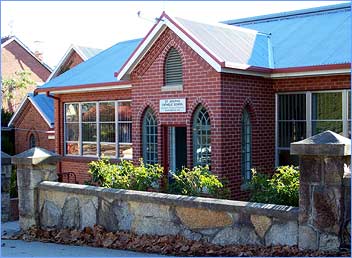


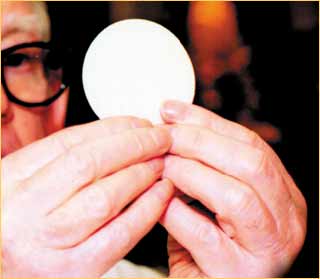 Who can be admitted to Holy Communion is one of the issues that the US bishops are asking this autumn, Nancy Frazier O'Brien summarises a paper up for discussion. I understand that it is something our own Bishops are being urged to discuss again.
Who can be admitted to Holy Communion is one of the issues that the US bishops are asking this autumn, Nancy Frazier O'Brien summarises a paper up for discussion. I understand that it is something our own Bishops are being urged to discuss again.
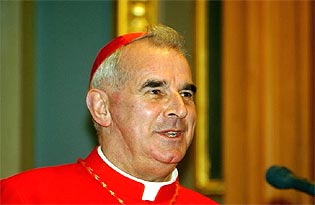
...............
O'Brien's comments came after he was asked which trend in society posed the greater threat in Europe: secularisation or Islamicisation.
He replied: "Secularisation is the greatest threat. Muslims are firm in their faith and in their views. They believe in one God. That is a point of identification; though it can also produce tensions. Muslims coming here are free to build mosques, but Christians in Muslim countries are often oppressed."
 An addition to the previous post.
An addition to the previous post.
Wouldn't you want to join these sister? Maybe not if you were a chap. Is there something about veils and habits and thriving?
h/t to Me Monk, Me Meander
 My summary, for what it is worth is based on this excerpt and his other writings: if we live in a world where my idea of good is different from your idea of good we have cannot communicate effectively, this leads to fragmentation and isolation and to ultimate unhappiness. It is only in God that we have access to ultimate Truth, and that we become truly human and therefore truly happy.
My summary, for what it is worth is based on this excerpt and his other writings: if we live in a world where my idea of good is different from your idea of good we have cannot communicate effectively, this leads to fragmentation and isolation and to ultimate unhappiness. It is only in God that we have access to ultimate Truth, and that we become truly human and therefore truly happy. Conti - investigated
Conti - investigated


 Fr Sean has an interesting post on the implications of the extension of the Classical Roman Rite, which he found in the Scotsman. Bishop Fellay, the leader of the presently schismatic Society of Saint Pius X, has been talking about an accommodation with the Church similar to what exist in China with the "Patriotic Church", this I find interesting because this could well be a model for reunion with the Orthodox.
Fr Sean has an interesting post on the implications of the extension of the Classical Roman Rite, which he found in the Scotsman. Bishop Fellay, the leader of the presently schismatic Society of Saint Pius X, has been talking about an accommodation with the Church similar to what exist in China with the "Patriotic Church", this I find interesting because this could well be a model for reunion with the Orthodox.
 The d'Elx Mysteri Play, about the Blessed Virgin's Assumption was performed on Radio 3, on Saturday "they called it Elche", listen.
The d'Elx Mysteri Play, about the Blessed Virgin's Assumption was performed on Radio 3, on Saturday "they called it Elche", listen. "I have been told before, and I expect some of you have, that we should not be frightened of change.
"I have been told before, and I expect some of you have, that we should not be frightened of change. THE head of the Government's fertility watchdog has declared age should not bar women in their 50s and 60s from having IVF treatment.
THE head of the Government's fertility watchdog has declared age should not bar women in their 50s and 60s from having IVF treatment.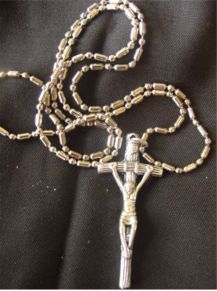
 Speaking after his first private audience with Pope Benedict XVI, the Cardinal – who, according to Canon Law, must offer his resignation to the Pontiff when he turns 75 – said that he did not know if his time as spiritual leader of Catholics in England and Wales was nearing its end.
Speaking after his first private audience with Pope Benedict XVI, the Cardinal – who, according to Canon Law, must offer his resignation to the Pontiff when he turns 75 – said that he did not know if his time as spiritual leader of Catholics in England and Wales was nearing its end. from Pontifications
from Pontifications Saint Peter's ready for tomorrows canonisations, read their biographies on the Vatican Website (scroll down to October)
Saint Peter's ready for tomorrows canonisations, read their biographies on the Vatican Website (scroll down to October) Mosul (AsiaNews) – Fr Paulos Eskandar was laid to rest in Mosul today. The decapitated body of the Syrian-Orthodox priest was found in an eastern district of this Iraqi city yesterday. He was abducted last Monday by an unknown Islamic group which posted a hefty ransom of US$250-350,000, the Assyrian International News Agency (AINA) reported. The group also demanded that signs be posted on his church apologising for the Pope's Regensburg remarks as a pre-condition for negotiations.
Mosul (AsiaNews) – Fr Paulos Eskandar was laid to rest in Mosul today. The decapitated body of the Syrian-Orthodox priest was found in an eastern district of this Iraqi city yesterday. He was abducted last Monday by an unknown Islamic group which posted a hefty ransom of US$250-350,000, the Assyrian International News Agency (AINA) reported. The group also demanded that signs be posted on his church apologising for the Pope's Regensburg remarks as a pre-condition for negotiations. Thinking more about the Tridentine Rite: whenever I have encountered it on the continent, rather than being something for the elderly, seems to be filled with young people. We struggle with filling our seminaries, whereas wherever the old rite is celebrated I get the impresssion the problem is building seminaries, or at least ensuring that there are enough places for students. The priests who celebrate this rite, on the continent, and apparently in the US, are not the elderly, but men in their twenties and thirties and even in this country they seem to be the zealous, devout and learned. Far from dying out there seems to be a serious growth in the Tridentine Rite. One could talk about it as a youth movement. Indeed there seems to be a fecundity about it that is lacking in the sterility of "mainstream" liberal European Catholicism.
Thinking more about the Tridentine Rite: whenever I have encountered it on the continent, rather than being something for the elderly, seems to be filled with young people. We struggle with filling our seminaries, whereas wherever the old rite is celebrated I get the impresssion the problem is building seminaries, or at least ensuring that there are enough places for students. The priests who celebrate this rite, on the continent, and apparently in the US, are not the elderly, but men in their twenties and thirties and even in this country they seem to be the zealous, devout and learned. Far from dying out there seems to be a serious growth in the Tridentine Rite. One could talk about it as a youth movement. Indeed there seems to be a fecundity about it that is lacking in the sterility of "mainstream" liberal European Catholicism. I have to confess I love clerical gossip, not the wicked destructive type than kills reputations and drags everyone into hell. Well what seems to be the subject of rumour and gossip at the moment among clerical circles is the extension of the "indult" to say the Tridentine Mass. Various high ranking ecclesiastics are saying the Pope is going to sign something in November, they might be the same people who had said it was going to be Holy Week, this year, or summer but this has being going ever since Pope Benedict was elected.
I have to confess I love clerical gossip, not the wicked destructive type than kills reputations and drags everyone into hell. Well what seems to be the subject of rumour and gossip at the moment among clerical circles is the extension of the "indult" to say the Tridentine Mass. Various high ranking ecclesiastics are saying the Pope is going to sign something in November, they might be the same people who had said it was going to be Holy Week, this year, or summer but this has being going ever since Pope Benedict was elected.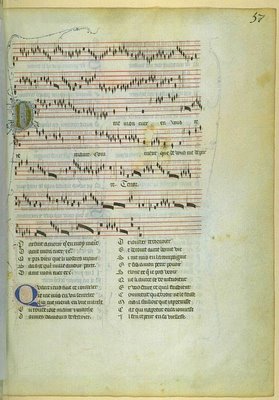
 a post I made below "By their fruits ...", “I get annoyed with Catholics and others who come out with the rather meaningless platitude, "Well, we all worship the same God". My answer: Don't be daft of course we don't!”"
a post I made below "By their fruits ...", “I get annoyed with Catholics and others who come out with the rather meaningless platitude, "Well, we all worship the same God". My answer: Don't be daft of course we don't!”"At Matins/the Office of Readings on Holy Saturday the Church gives us this 'ancient homily', I find it incredibly moving, it is abou...